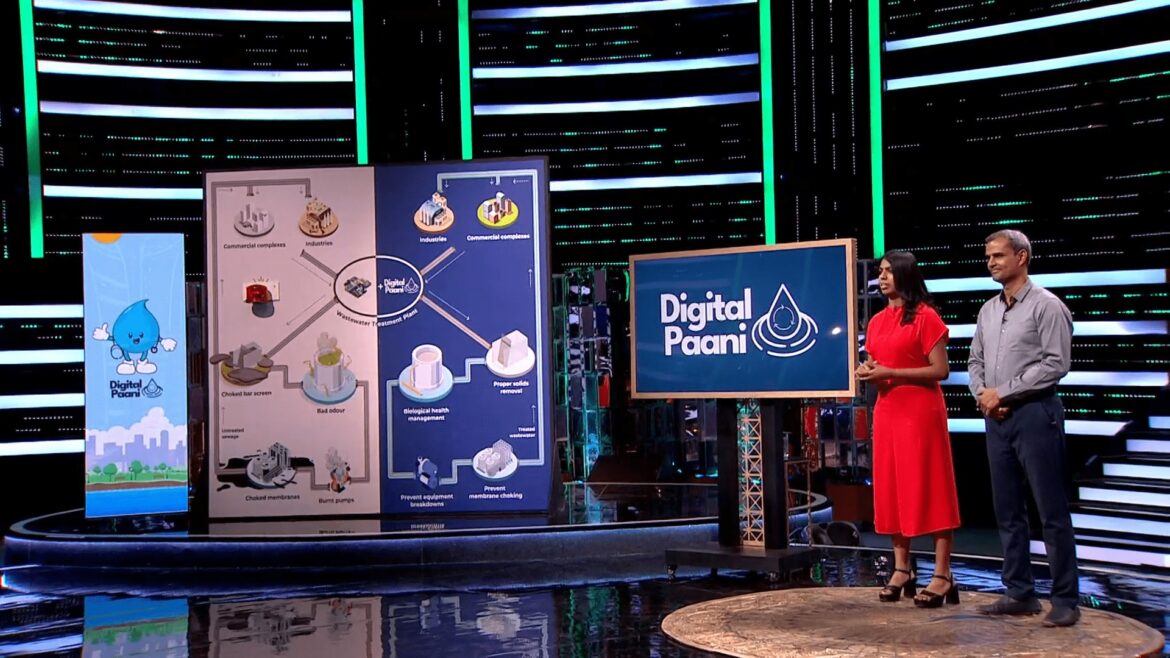DigitalPaani Shark Tank India Season 3
DigitalPaani
Nearly 75% of the sewage treatment plants in India that have the capacity to recycle water are still closed, contributing to the country’s acute water constraint. Our state-of-the-art IoT and digital management tools rethink wastewater operations to save the environment and create water-rich, clean cities. With the help of specially designed sensors and more than 75 algorithms, our IOT-powered platform automates plants, initiates automated workflows for service teams, and provides maintenance recommendations.
Founder of DigitalPaani
Mansi and Rajesh Jain, a father-daughter team, built DigitalPaani.
DigitalPaani Funding Round
Company Name | DigitalPaani |
Shark Tank India Season | 3 |
Episode No | 52 |
Season No | 3 |
Brand | DigitalPaani |
Idea | Coaching classes for IIT/JEE |
Original Ask | 2 Crores for 1% Equity |
Deal | No Deal |
Invested By: | ——– |
DigitalPaani set out to redefine the fashion landscape by offering unique and trendsetting clothing designs that resonated with the modern consumer. With a commitment to sustainability, the brand aimed to incorporate eco-friendly materials and ethical manufacturing practices into its production process. DigitalPaani envisioned itself as more than just a clothing brand but as a movement towards conscious fashion choices that leave a positive impact on the planet.
The Pitch:
With an original ask of 70 Lakhs for 1% equity, DigitalPaani presented a compelling pitch that highlighted its innovative designs and commitment to sustainability. The founders showcased their passion for fashion and their desire to disrupt the industry by challenging traditional norms and embracing creativity. They emphasized the growing demand for eco-conscious fashion among consumers and positioned DigitalPaani as a brand that catered to this emerging market segment.
The Deal:
Despite their promising pitch, DigitalPaani left the tank without a deal. While the sharks acknowledged the potential of the brand and its alignment with current trends towards sustainability, they expressed concerns about the scalability and competitive landscape of the fashion industry. Without a clear differentiation strategy and a proven track record of success, the sharks were hesitant to invest at the proposed valuation.
Conclusion:
DigitalPaani's journey on Shark Tank India showcased the potential for innovation and sustainability in the fashion industry. While their pitch did not lead to a deal, their commitment to conscious fashion choices and creative designs left a lasting impression on both the sharks and the audience. As DigitalPaani continues to evolve and adapt to market demands, it remains poised to make a meaningful impact on the way we view and consume fashion in the future.

